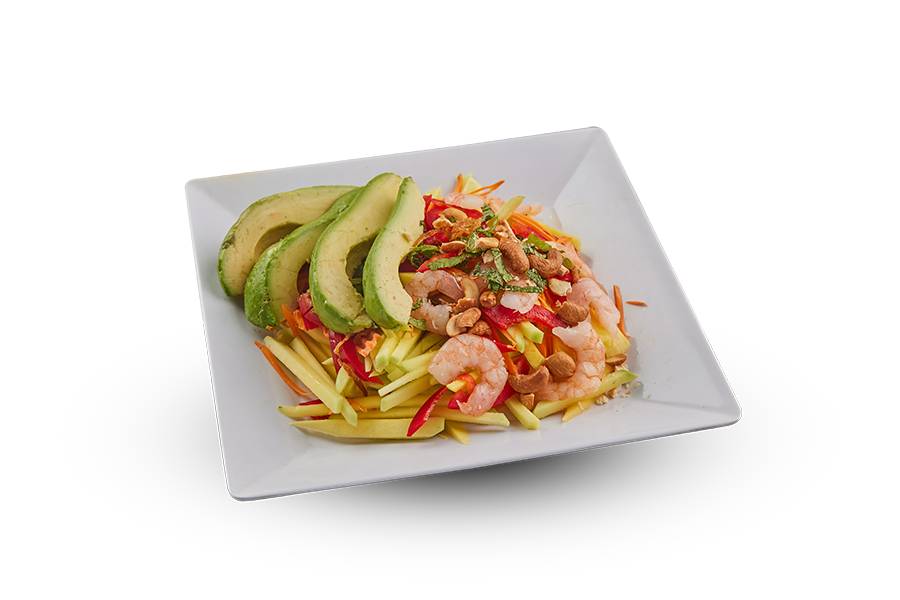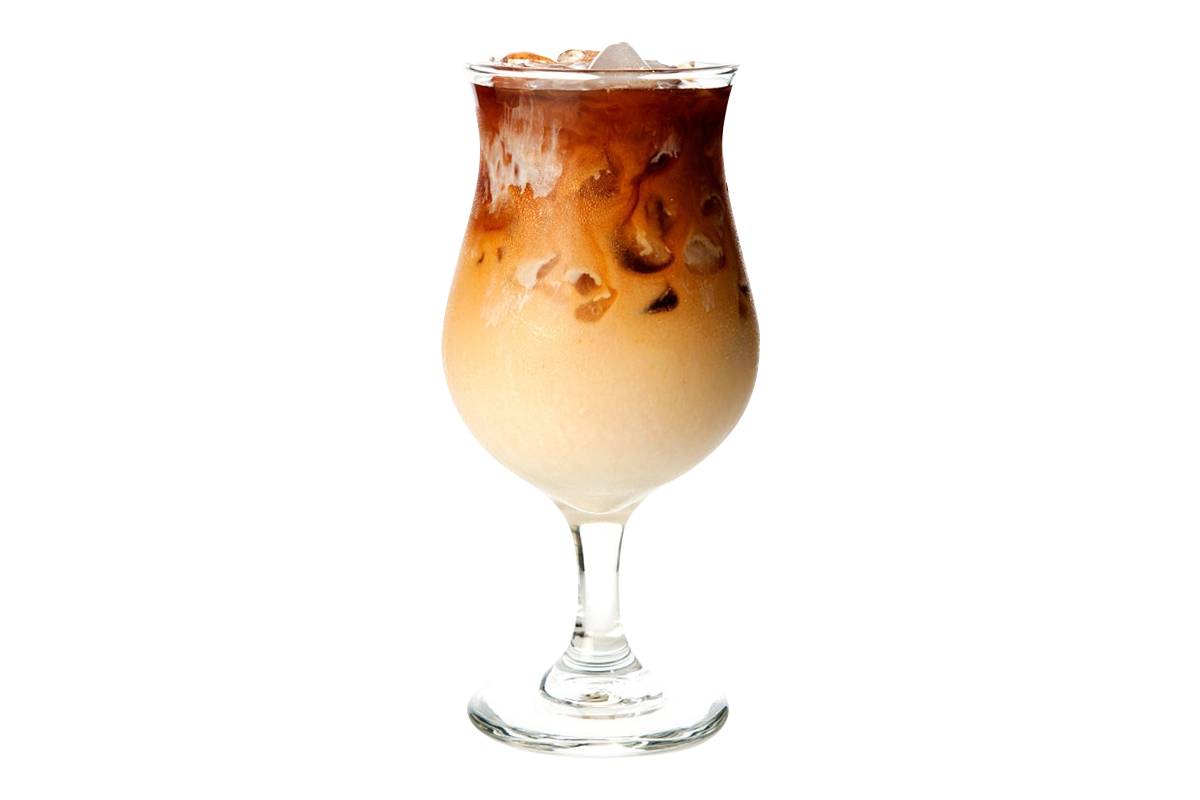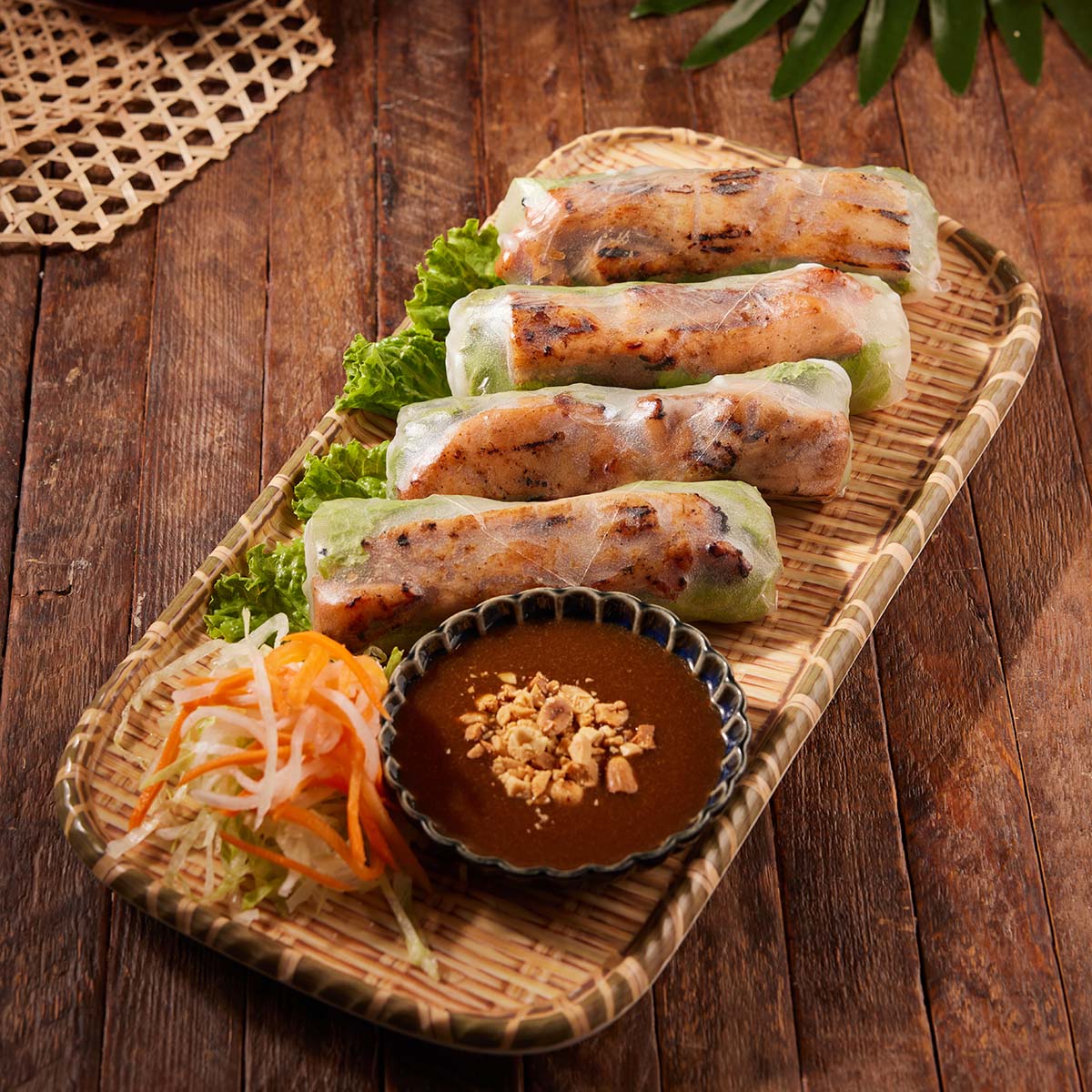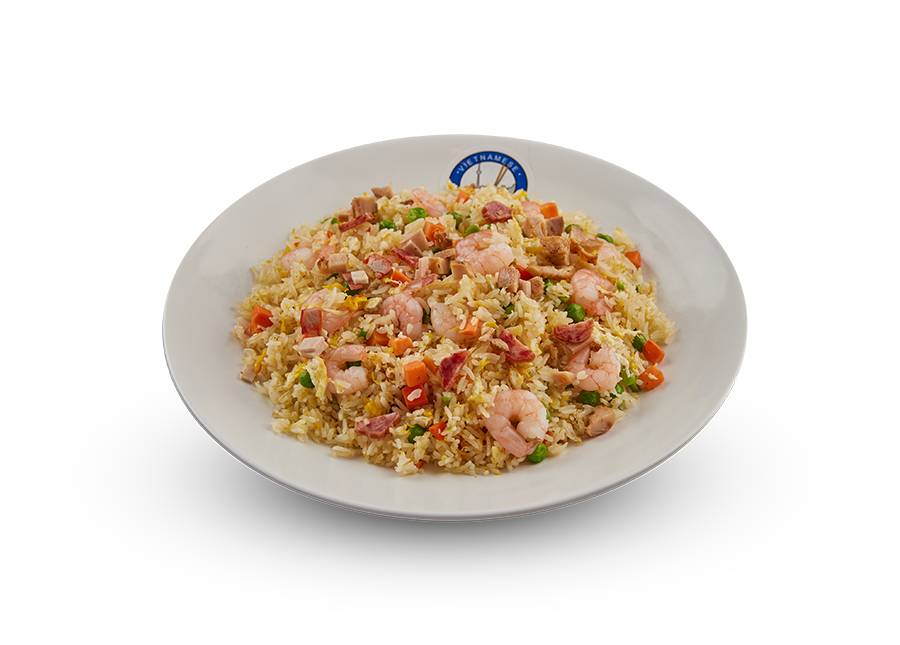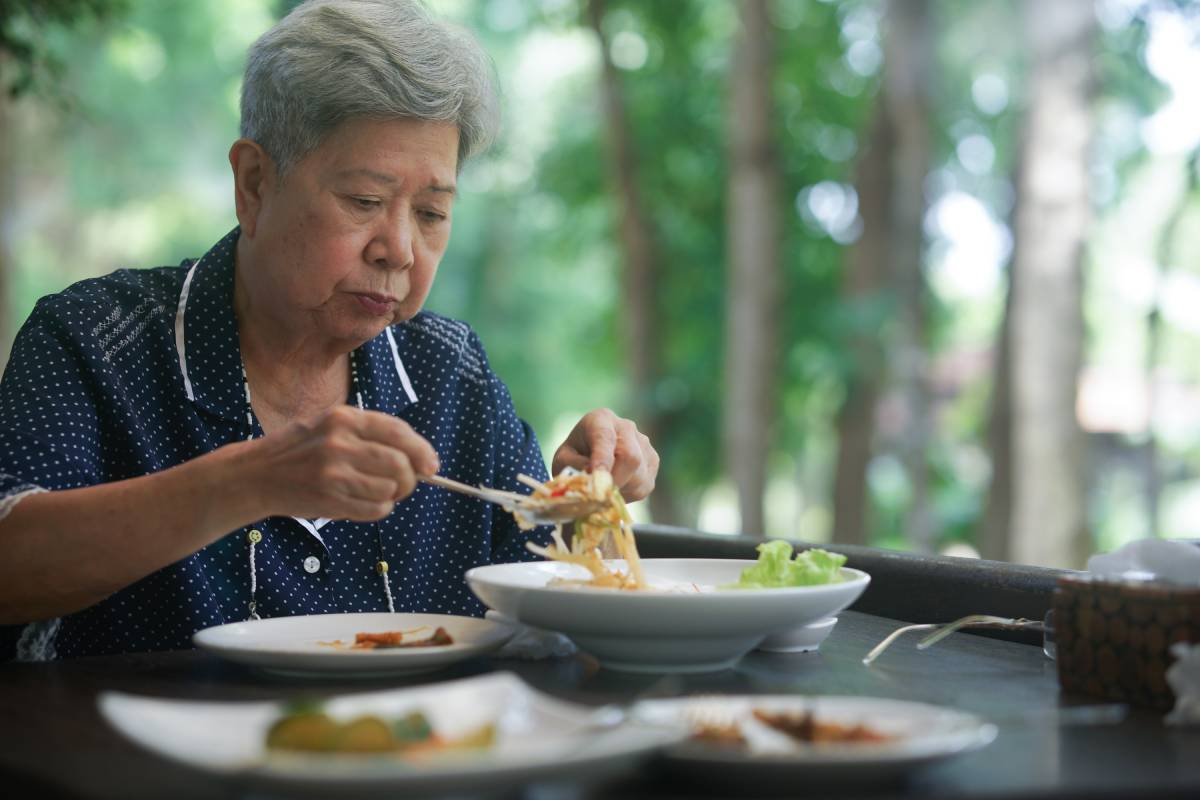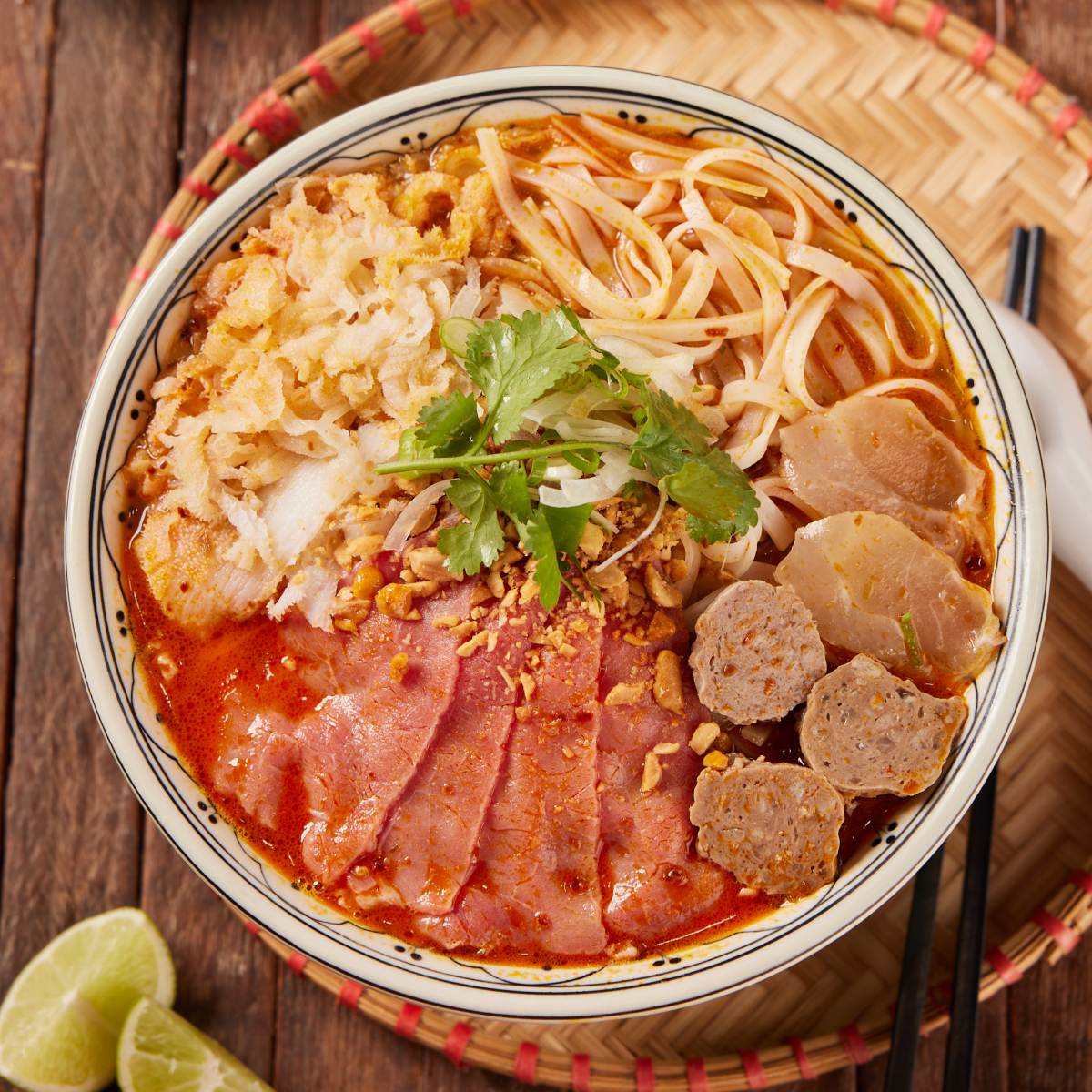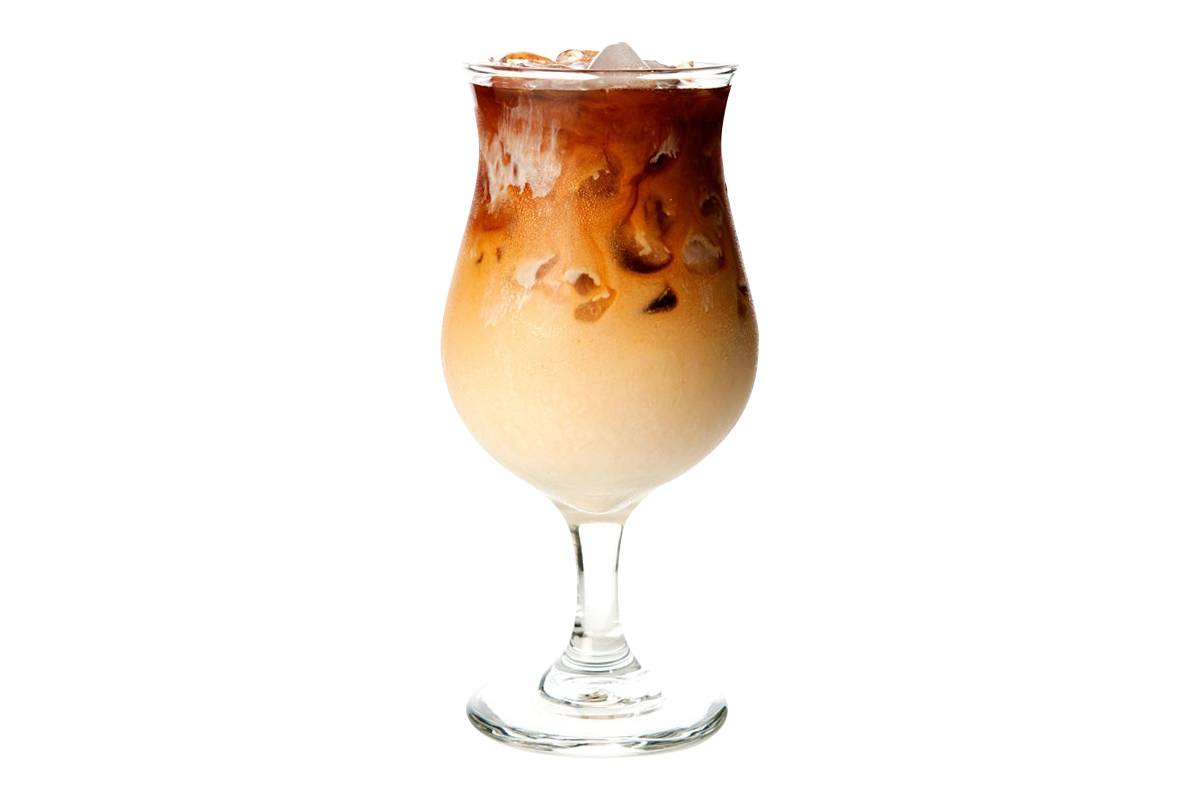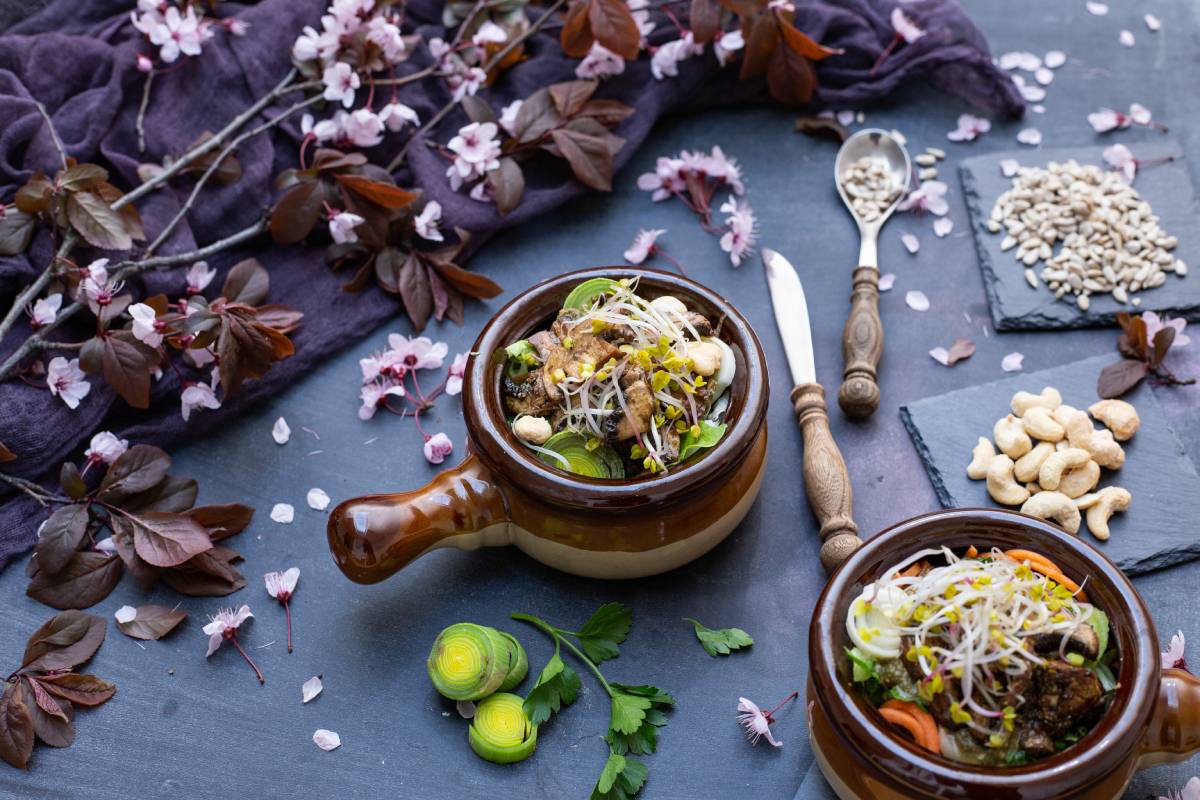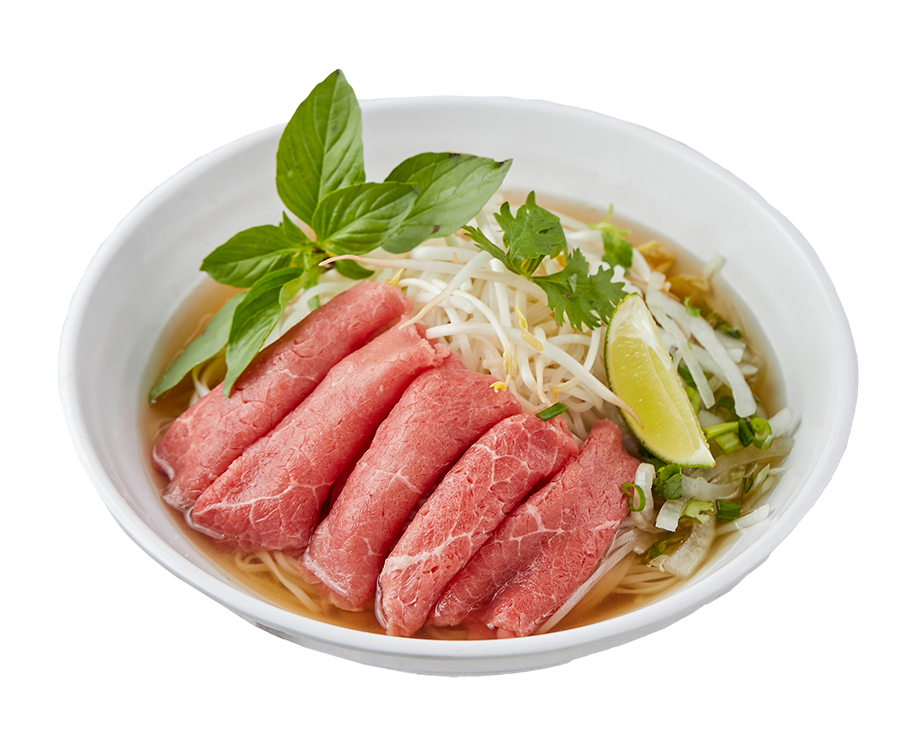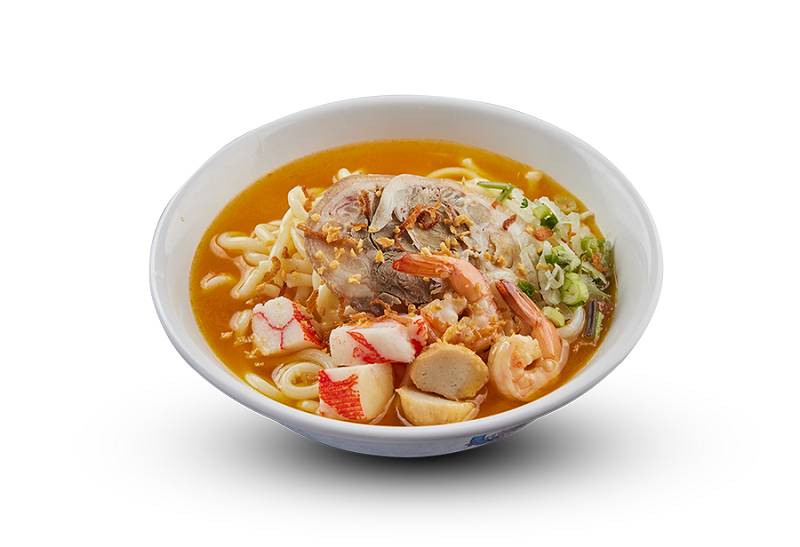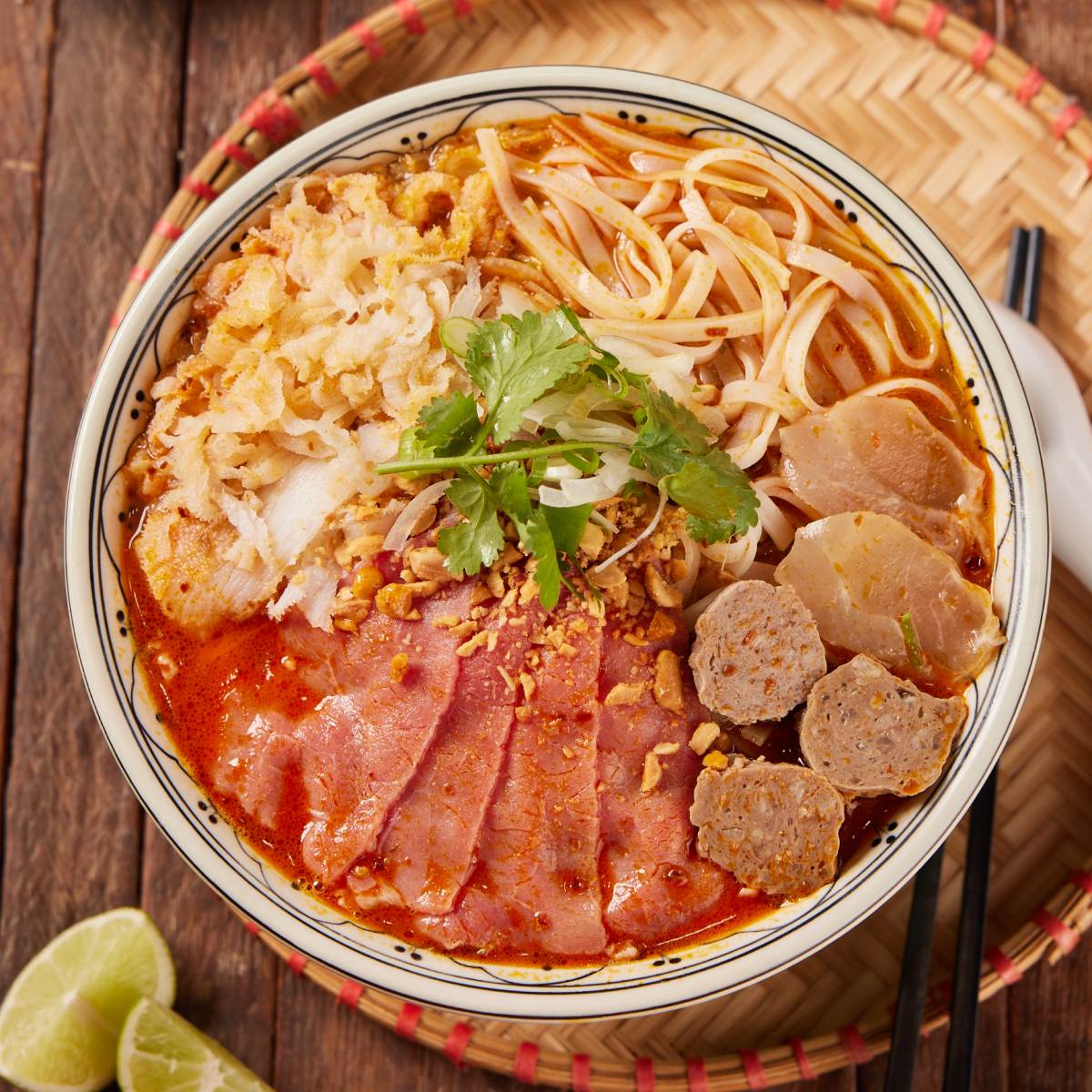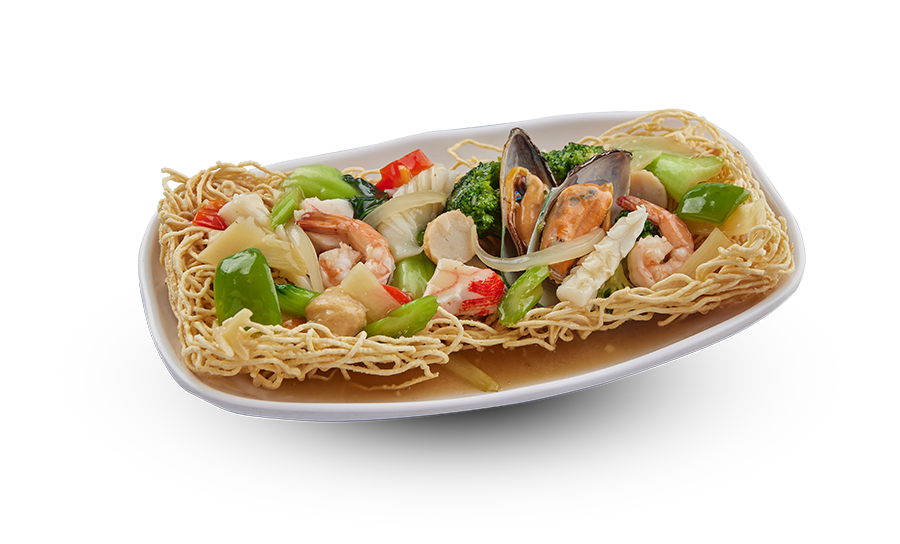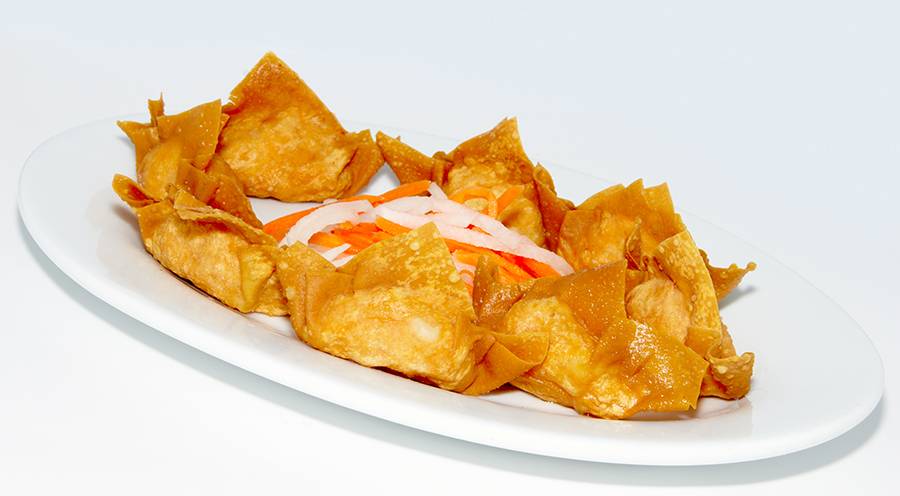Low-calorie and Nutrient-Dense Meals
A typical Vietnamese meal is a testament to the balance and moderation that the cuisine embodies. Dishes are often prepared with lean meats, fresh vegetables, herbs, and seafood, each serving to provide a balance of nutrients without an excess of calories. For example, a standard serving of pho—a traditional Vietnamese noodle soup—contains lean cuts of beef or chicken, a broth seasoned with spices like star anise and cinnamon (without relying on heavy use of fats), and is typically loaded with greens such as basil, mint, cilantro, and onions.
High in Dietary Fibers
The abundance of fresh vegetables and whole grains in the Vietnamese diet makes it high in dietary fiber. Meals like bánh xèo (a crispy crepe filled with shrimp, pork, bean sprouts, and other vegetables) and salads such as gỏi cuốn (fresh spring rolls) are excellent sources of fibre. Fiber is crucial for digestive health, helping to maintain bowel health, lower cholesterol levels, regulate blood sugar levels, and achieve a healthy weight.
Rich in Antioxidants
Vietnamese cuisine extensively uses herbs and spices known for their antioxidant properties. Ingredients like ginger, turmeric, and garlic, staples in many Vietnamese kitchens, offer significant health benefits, including reducing inflammation and enhancing immune function. Moreover, the frequent use of green tea as a beverage and in recipes adds another layer of antioxidant protection, which is linked to reduced risks of heart disease, cancer, and diabetes.
Heart Health
The Vietnamese diet is heart-friendly primarily due to its low in saturated fats and high in lean proteins and plants that help improve cholesterol levels and lower blood pressure. Fish, a common ingredient especially in coastal regions, is an excellent source of omega-3 fatty acids, known for their heart health benefits. Dishes like cá kho tộ (caramelized fish in a clay pot) offer a delicious way to get these essential fats.
Weight Management
Due to its low fat and high fibre content, the Vietnamese diet can be an excellent option for weight management. The emphasis on fresh ingredients and minimal use of processed foods helps maintain a healthy calorie intake while feeling full and satisfied. This approach to eating can naturally lead to weight loss or maintaining a healthy weight without the need to count calories rigorously.
Blood Sugar Control
The balance of fibre-rich plants and proteins in Vietnamese cuisine helps regulate blood sugar levels. This is particularly beneficial for individuals with diabetes or those at risk. Complex carbohydrates, like those in brown rice and whole grain noodles, have a lower glycemic index, which assists in slower sugar release into the bloodstream.
Skin Health
Vietnamese food also contributes to skin health through its high levels of antioxidants, vitamins, and hydration. Ingredients such as lemongrass, mint, and green tea have properties that protect the skin from premature aging and help combat oxidative stress, which can lead to skin deterioration.
Enhanced Digestive Health
To support gut health, the Vietnamese diet uses probiotic-rich foods like dưa muối (pickled vegetables) to support mu versa. These fermented foods are a natural source of probiotics, which are beneficial for maintaining a healthy gut flora, thus enhancing digestion and absorption of nutrients and boosting the immune system.
Cancer Prevention
Elements of the Vietnamese diet, such as fresh fruits, vegetables, turmeric, garlic, and green tea, have been associated with a reduced risk of certain types of cancer. These foods contain compounds that may help decrease the growth of cancer cells and support the body in processes that fight cancer's development.
Longevity
One of the most compelling endorsements of the Vietnamese diet is the longevity of its people. The emphasis on fresh, minimally processed foods, balanced nutrition, and the therapeutic use of herbs and spices contributes to a lifestyle that supports longer and healthier lives.
Incorporating aspects of the Vietnamese diet into one's eating habits can be a flavorful and healthful journey. Whether opting for more greens, enjoying the benefits of fermented foods, or using spices for their flavours and health properties, the Vietnamese culinary tradition offers ample opportunities for nourishing the body and soul. Embracing this diet could lead to better physical health and a renewed enjoyment of food as a fundamental and pleasurable part of everyday life.
Here are some delicious food and drinks to try when ordering from PHO restaurants in Toronto:
Vegetarian Salad Roll with Tofu (Gỏi Cuốn CHAY)
Fresh Rolls with Peanut Sauce (Gỏi Cuốn)
Rare Beef and Beef Ball (Phở Tái, Bò Viên)
House Special Beef Noodle Soup (Phở Đặc Biệt)


